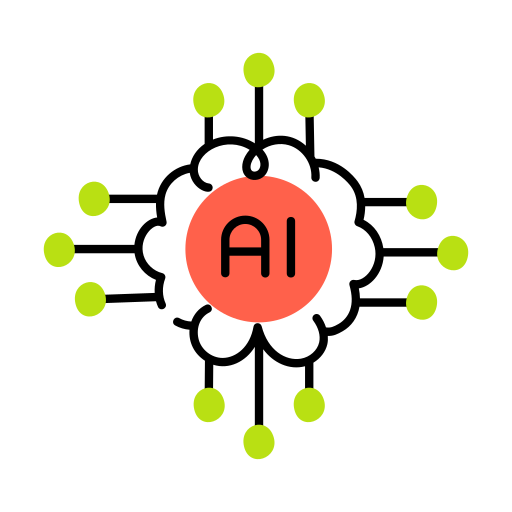5 Differences Between Software Tester and Developer

Don’t you all agree when I say that what can be more confusing than understanding the difference between a software developer and a tester? Especially if you’re from a non-IT background like me. Both roles seem to deal with code, work in tech teams, and are essential to software creation. This overlapping nature often leaves many wondering- aren’t they doing the same thing?
Now, imagine how great it would be to finally clear up this confusion. By the end of this blog, you’ll clearly understand the distinction between a software developer and a software tester. This clarity can help you choose the right career path or simply enhance your technical literacy.
In this blog, we’ll break down the profiles of a software tester and a developer, the reasons people often mix up the two, and how to tell them apart. Apart from this, we’ll also explore which role is more in demand in 2025, and answer some of the questions that people frequently ask.
ALL ABOUT SOFTWARE TESTER-
- A software tester is primarily responsible for evaluating the quality of a software product. They work closely with computer programs and applications to make sure everything operates correctly before it goes live.
- This includes running various tests, identifying bugs, documenting issues, and verifying that the application meets the business and technical requirements. In many ways, a software tester is like a quality gatekeeper for digital products.
But there’s more to testing than just “finding bugs.” Testers also design test cases, write test scripts (sometimes automated), and use tools like Selenium, JIRA, and TestNG. A unique aspect of this role is the tester’s mindset: they think like end-users, focusing on usability and performance. This human-centered approach sets them apart from developers. They also play a crucial role in performance testing, security testing, and regression testing to ensure the app’s stability during updates.
ALL ABOUT SOFTWARE DEVELOPER-
- A software developer is the creative mind behind the functionality of software applications. They use their programming knowledge to create, design, and maintain software that meets a client’s or organization’s needs.
- Developers are responsible for translating user requirements into functional code. Typically, they work on building systems, writing algorithms, and integrating databases.
What makes software developers unique is their problem-solving mindset. They focus on “how things will work” and often use languages like Java, Python, C#, or JavaScript to develop solutions. Developers are deeply involved in the Software Development Life Cycle (SDLC), from planning and prototyping to deployment and maintenance. Unlike testers, they have a more proactive role in building software from scratch, and their work begins much earlier in the development process.
WHY IS THERE A CONFUSION AND HOW TO DIFFERENTIATE?
1. Similarity in the Job Role-
The primary reason for confusion is that both roles contribute directly to the software development process. They collaborate on the same projects, use similar technical language, and often share responsibilities in agile environments. This functional overlap makes it hard to distinguish between them.
In order to differentiate between the two it’s easy to remember that developers create the software, while testers validate it. Developers are responsible for building features, whereas testers ensure these features work as intended under different conditions.
2. Shared Tools and Environments-
The second reason for confusion is that both testers and developers often use the same tools like Git, Jenkins, or IDEs such as IntelliJ or Visual Studio Code. They may even work in the same test environments, leading to the assumption that their roles are identical.
However, the intention behind tool usage varies. Developers use these tools for coding and deployment; testers use them for test execution and bug tracking. The roles are complementary but distinct.
3. Agile and DevOps Practices-
In Agile and DevOps teams, the lines between development and testing are increasingly blurred. Everyone is encouraged to take ownership of quality, leading to more developers writing tests and more testers understanding code.
Still, the core focus remains different: developers think in terms of building new functionality, while testers focus on breaking the functionality to ensure robustness.
3. Misunderstanding of the Testing Role-
Many people think testing is just clicking buttons to find bugs. This underestimates the strategic role of testers in quality assurance, risk management, and automation planning. This perception gap causes confusion.
Understanding that testers need analytical skills, scripting knowledge, and domain understanding helps clarify their importance and difference from developers.
4. Educational Overlap-
Both developers and testers often come from similar educational backgrounds, usually computer science or IT. This similarity adds to the confusion for newcomers trying to choose a specialization.
What sets them apart is the career focus: developers learn more about algorithms and system architecture, while testers are trained in testing methodologies, automation frameworks, and quality metrics.
TESTER VS DEVELOPER – WHO’S IN MORE DEMAND IN 2025?
Let’s understand as of 2025, both software testers and developers are in high demand, but the nature of that demand is evolving. With the rise of automation, AI, and continuous integration, testers skilled in automation and DevOps are seeing a spike in hiring. On the other hand, full-stack developers remain critical for startups and enterprise-level projects alike.
What is the deciding factor? Skill adaptability. Testers who can code and developers who understand testing principles are the most sought-after professionals in the market today. The tech industry is moving toward hybrid roles, where knowledge of both domains is a valuable asset.
FAQS-
1. How to differentiate between software testing and developer easily for a layman person?
– In simple language just understand that developers build and code software; testers ensure it works properly through various types of testing. Developers are creators; testers are quality gatekeepers.
2. Where can I learn about both?
– You can learn more about software testing along with other data science courses at SURESH IT- best Information Technology institute in hyderabad, which offers in-depth training along with placement assistance.
3. If you’re from a non-IT background, how long will it take to learn these courses?
– With consistent effort, it typically takes 4 to 6 months to gain proficiency in software testing or development, even from a non-IT background.
CONCLUSION-
Understanding the difference between developer and tester is crucial not only for choosing the right career path but also for building effective software teams. While both roles collaborate closely, their core responsibilities and mindset differ significantly. Software developers are creators, while software testers are quality champions. Recognizing these distinctions can help you appreciate the importance of both in delivering robust digital products.
At SURESH IT- best Information Technology Institute in Hyderabad, we make it easy for you to step confidently into the tech world. Whether you’re interested in Full-Stack Testing, DevOps with Power BI, or Data Analyst roles, our top-class faculty and flexible training formats (offline & online) ensure you get real-world, job-ready skills. Join us now!
FOLLOW US ON INSTAGRAM!














